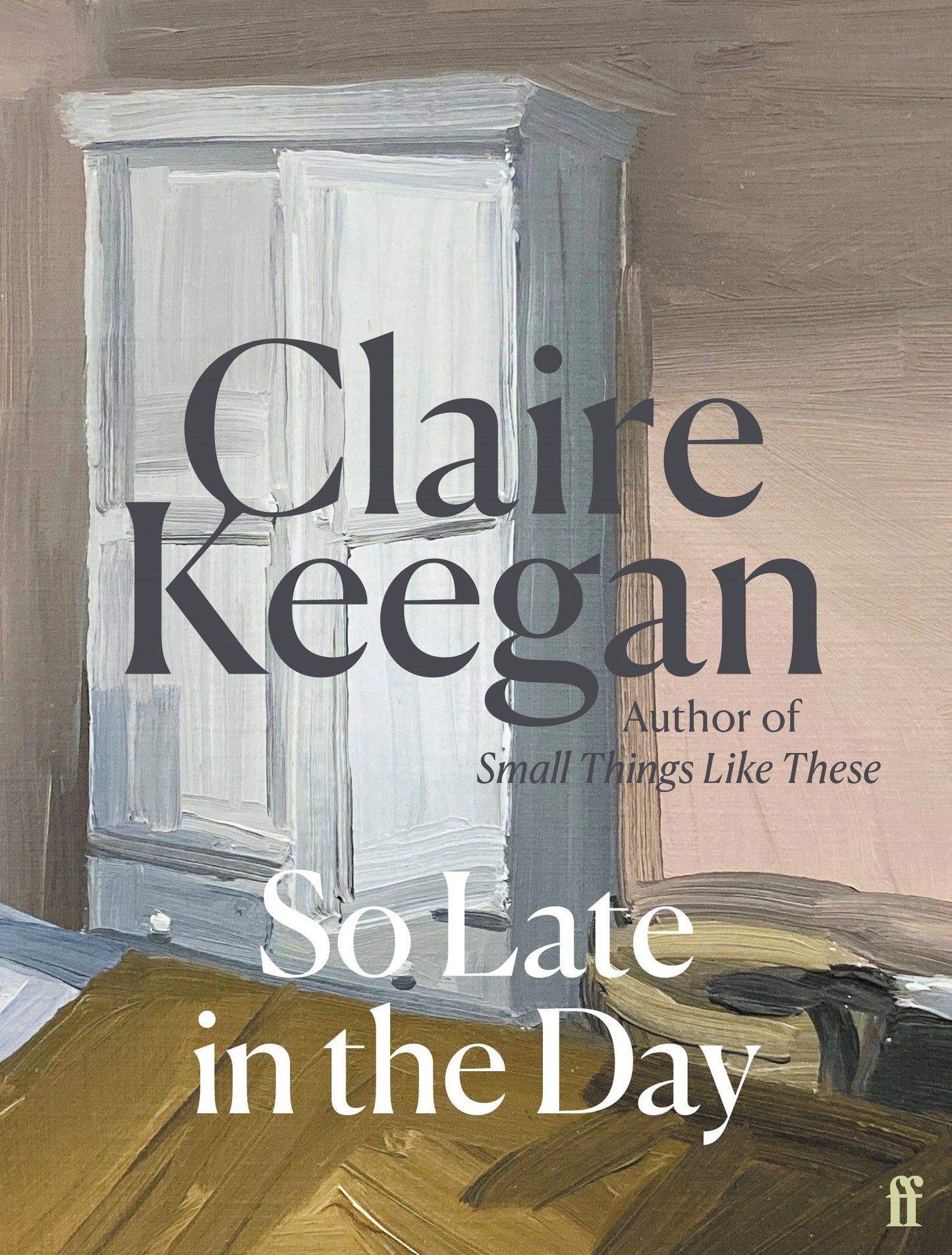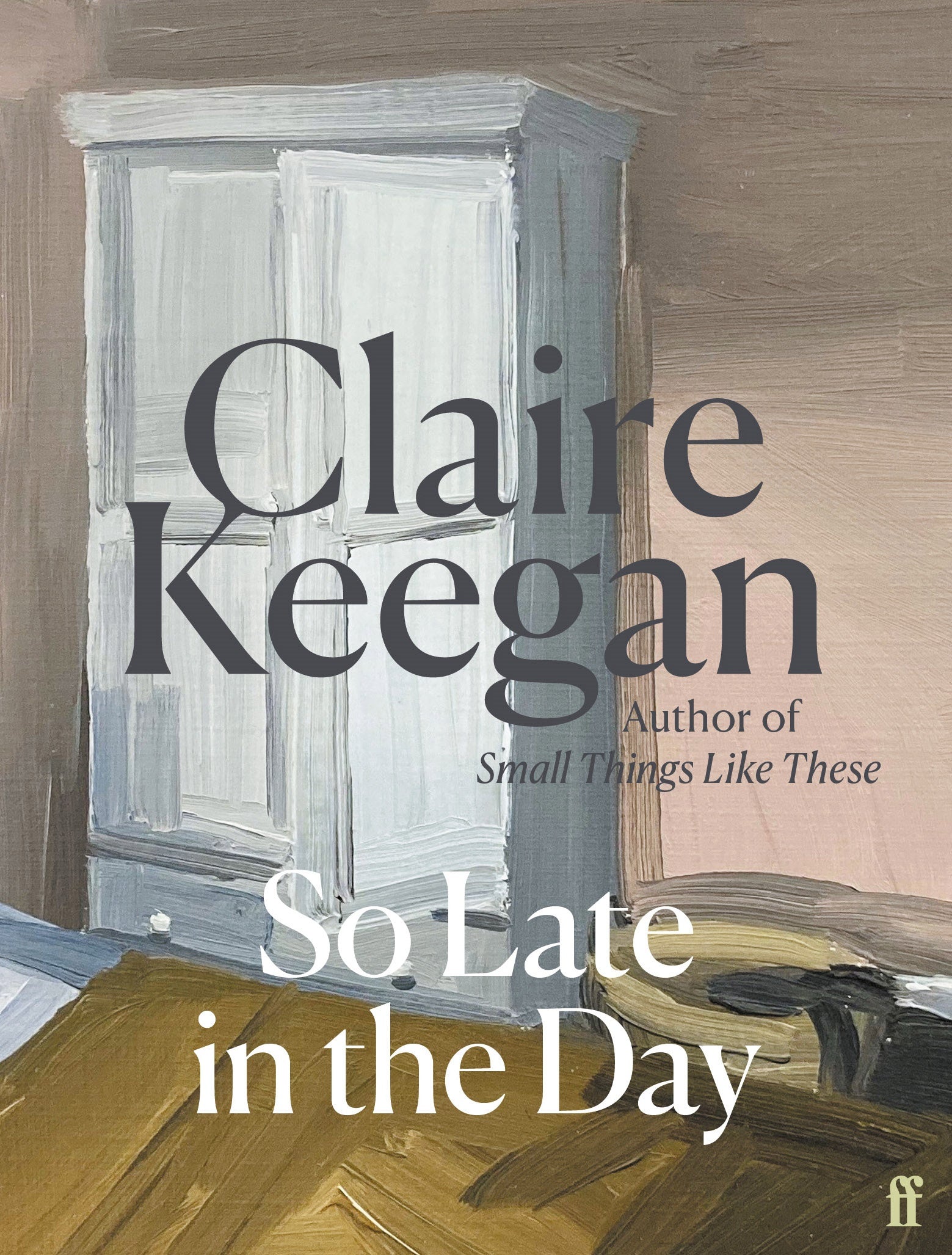Claire Keegan
So Late in the Day
So Late in the Day
Couldn't load pickup availability
Review by Susan Midalia
Like her most recent novella, Small Things Like These, Claire Keegan’s new work, a long short story called So Late in the Day, is seen from a male perspective. But while Keegan’s earlier hero, Bill Furlough, is morally courageous and compassionate, prepared to risk familial and social isolation and economic ruin to rescue a brutalised young girl, her new male protagonist, Cathal, is a mean-spirited, emotionally stunted man who struggles to understand why his fiancé changed her mind about marrying him. And while Small Things Like These is structed like a fable or moral quest, in which Furlough ultimately chooses to act on his knowledge of what it right and just, the alternation of past and present in So Late in the Day evokes Cathal’s vacillation between incomprehension, mounting resentment and self-righteous anger at the woman who left him. Nor is he callous by virtue of his youth; in his highly unromantic, off-hand proposal, he points out to his fiancé Sabine that ‘you know neither one of us is getting any younger.’
Crucially, however, Cathal is not a stereotype of toxic masculinity; while Keegan gradually reveals his insensitivity, sexism and crude misogyny, she also skilfully includes moments of self-questioning or regret that ask us to understand rather than merely judge him. As well, the absence of a surname in the story suggests there will be no family, no continuity of the family name: a fate glimpsed early in the story and which he arrives at only ‘late in the day.’ Cathal’s attitudes to women are also placed in a wider social context of contemporary Irish culture, including that of his own family, in which women are routinely humiliated or crudely sexualised by men. The cultural differences between Cathal and the more sophisticated Sabine – her French heritage is later rudely mocked by Cathal’s brother as ‘that French hoor’ – adds to the complexity of his attitude towards her; we sense his repressed feelings of class inferiority, later made explicit when he snidely corrects one of her misused cliches.
Keegan’s astute political critique is complemented by the subtlety of the narrative: small, seemingly inconsequential details accumulate to create a picture of a man with a deeply flawed perception of women who also seems destined for a life of loneliness and isolation. This element of sadness has echoes of the character of Mr Duffy in James Joyce’s famous short story ‘A Painful Case,’ in his ground-breaking collection Dubliners, published in 1915. While Cathal is a contemporary Dubliner, he shares with Mr Duffy a refusal of emotional intimacy: a deadness of heart that is enacted in the affectless language of the narrative. While So Late in the Day is clear-eyed about a culture of misogyny, sketched in with brilliantly concise and confronting brushstrokes, it also reminds us that fiction can offer us the gift of access to an individual consciousness, such that Cathal’s thoughts and feelings ultimately reveal the limits of his self-understanding and a presumed inability to change.
A politically provocative, deeply humane and intelligent story from one of our finest contemporary writers.
Other Reviews
'A genuine once-in-a-generation writer.' - The Times
'Every word is the right word in the right place, and the effect is resonant and deeply moving.' - Hilary Mantel
'Claire Keegan makes her moments real - and then she makes them matter.' - Colm Toibin
Share


